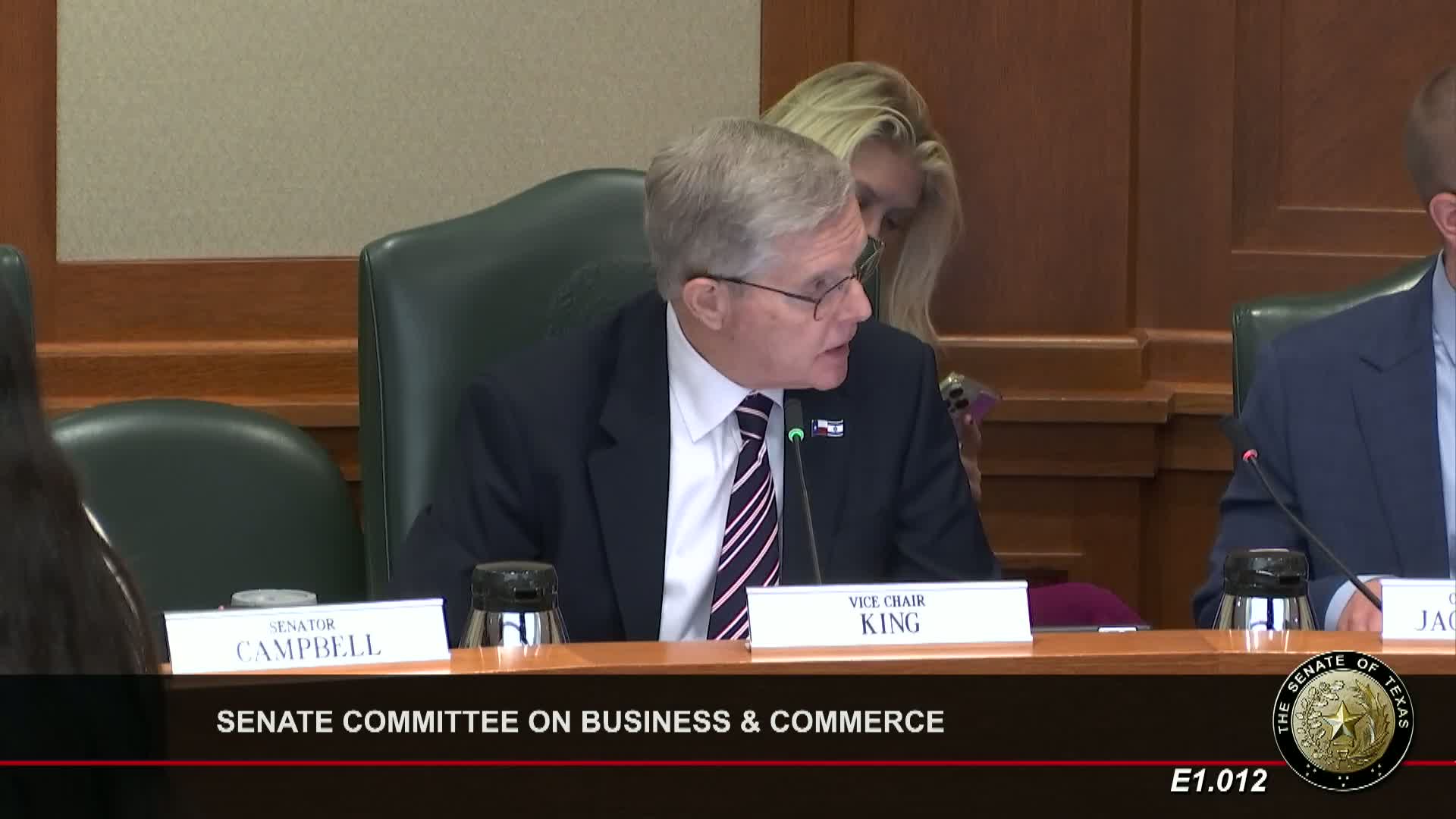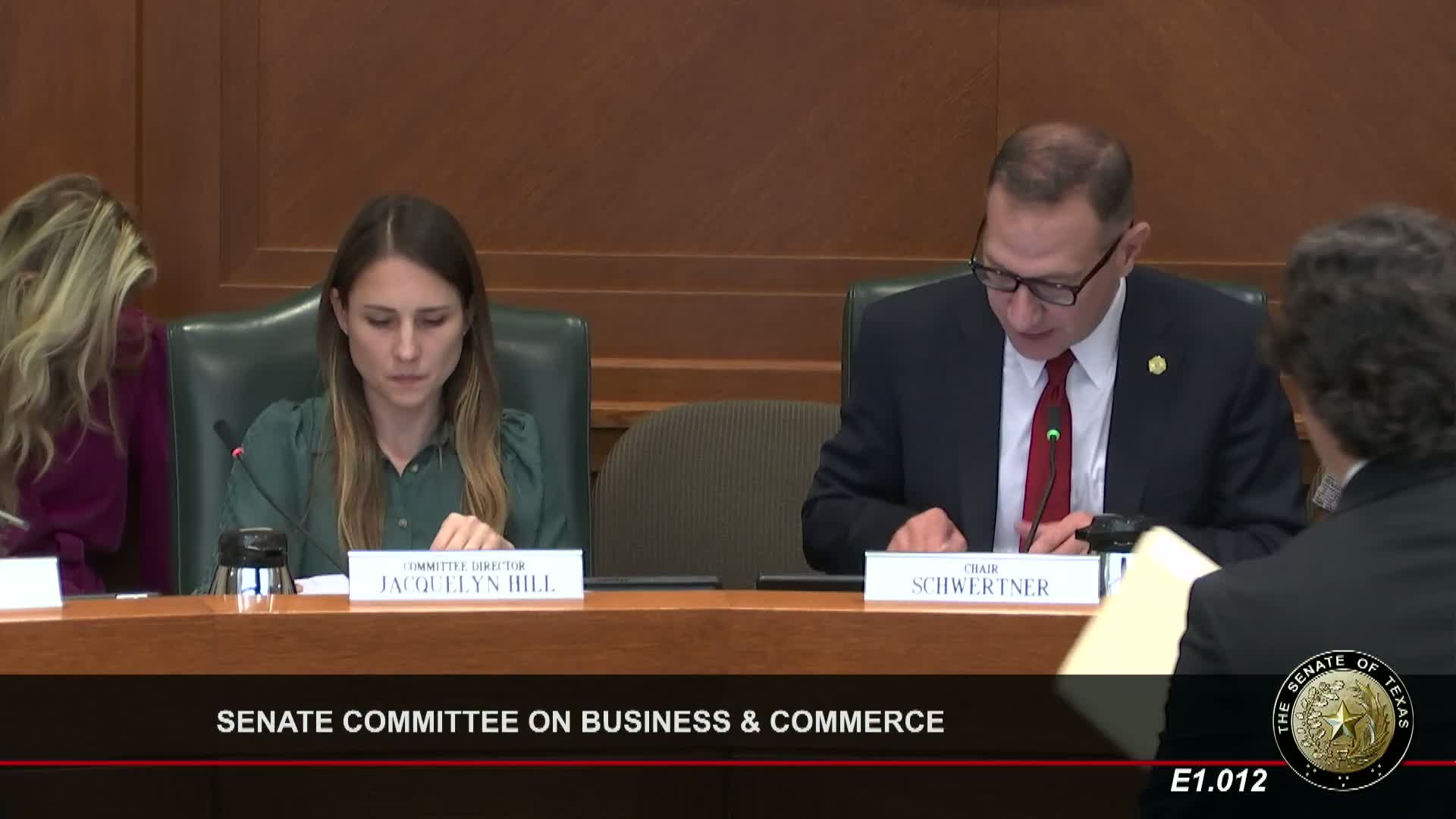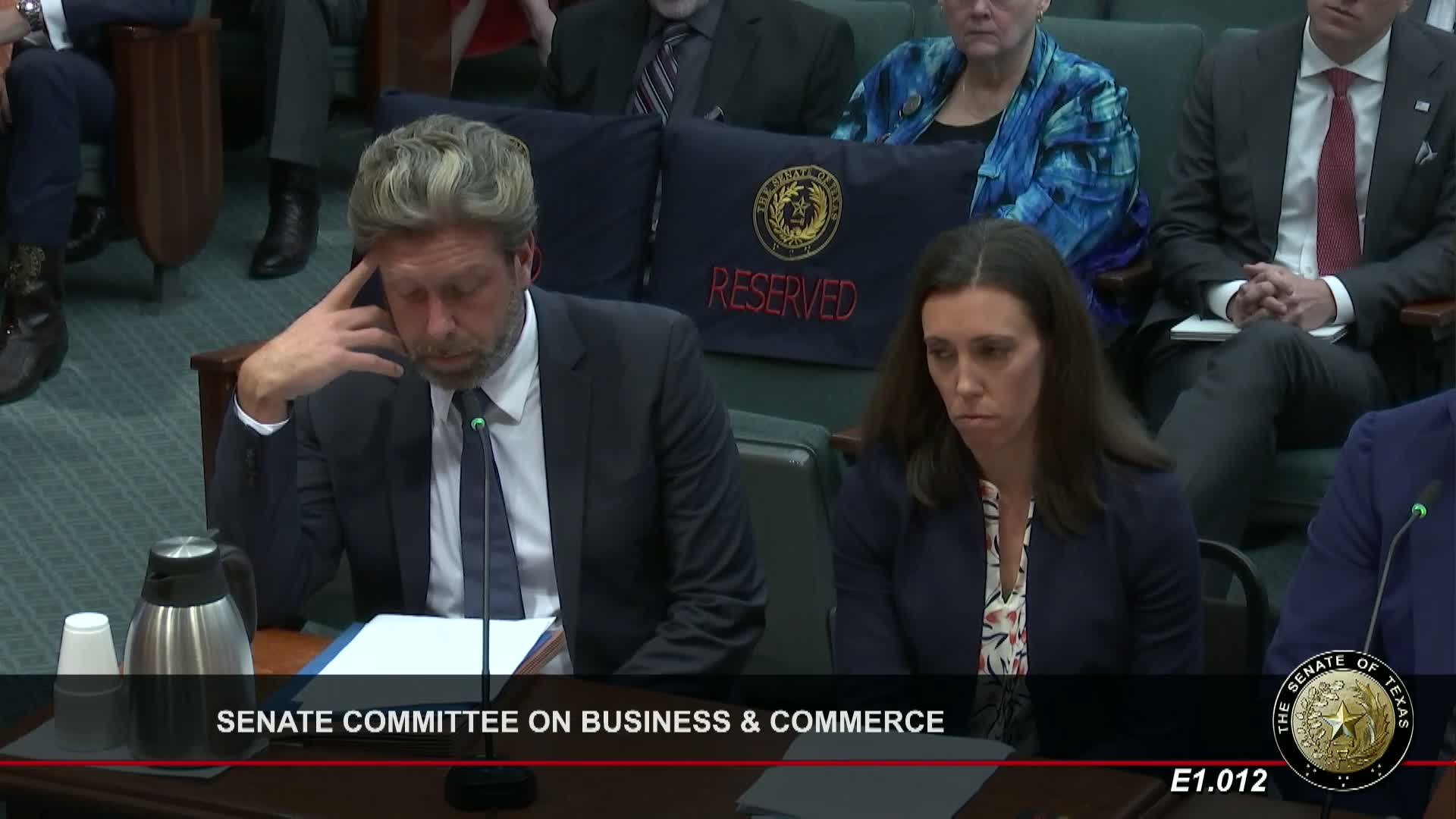Article not found
This article is no longer available. But don't worry—we've gathered other articles that discuss the same topic.

Senate panel debates bill to limit use of AI in insurer coverage denials; sponsors, providers and plans disagree on scope

Senate panel examines measure to publish taxpayer-funded nonprofit contracts; authors seek refinements

